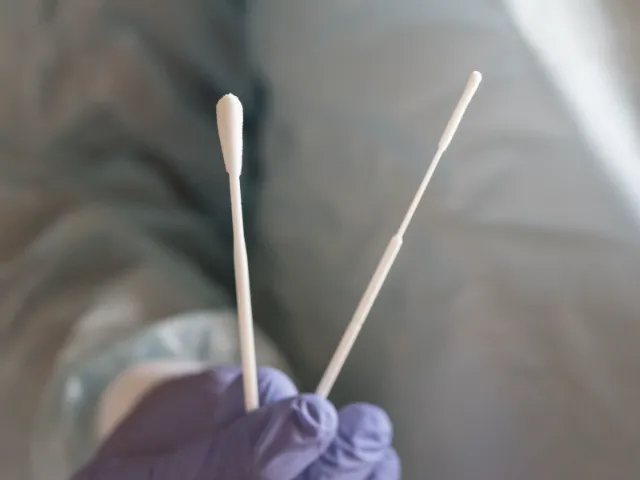
For many men, the question of whether a child is biologically theirs isn’t simply about curiosity—it’s about truth, responsibility, and closure. Suspicions of infidelity can weigh heavily on your peace of mind, straining relationships and creating uncertainty about your future. Knowing how to get a paternity test is more than a scientific process; it’s a way to gain concrete answers that can help you make informed decisions. Private investigation firms work with clients who want discreet, accurate results without unnecessary drama or attention.
How to Get a Paternity Test Through a Private Investigator
While many people think paternity tests can only be arranged through a clinic or ordered by a court, private investigators offer a more discreet and tailored approach. They can connect you with certified labs, guide you through the legal process if necessary, and ensure that the testing is performed in a manner that preserves the integrity of the results. For men concerned about infidelity, this private route also helps you avoid alerting your partner until you’re ready to discuss your findings.
The Advantage of Discretion
A private investigator can arrange paternity testing without involving mutual acquaintances or public health agencies. This allows you to maintain control over who knows about your situation and when it becomes public. Discretion also helps protect the privacy and emotional well-being of all parties involved.
Ensuring Legal Validity with Chain-of-Custody
Working with a professional ensures that your test results meet the legal standards for admissibility in court. This can be critical if you anticipate future custody disputes or child support proceedings. Maintaining proper documentation throughout the process further strengthens the credibility and reliability of the results.
Choosing Between Legal and At-Home Paternity Tests
When learning how to get a paternity test, you’ll discover there are two primary types: legal tests and at-home kits. Legal paternity tests adhere to strict chain-of-custody procedures, ensuring their results are admissible in court. At-home tests, while often accurate, are not typically accepted as legal evidence. For men dealing with potential child support disputes or custody battles, the legal route is the safest choice. If your goal is to satisfy personal doubts before taking further steps, an at-home test may provide the clarity you need before deciding on more formal action. Understanding the differences between these options helps you make an informed choice based on your immediate needs and long-term legal considerations.
How to Get a Paternity Test Without Your Partner Knowing
Some men hesitate to bring up paternity testing for fear of damaging their relationship or causing conflict. In these situations, private investigators can assist in arranging discreet testing. Depending on the circumstances and your state’s laws, testing may be possible without your partner’s consent. However, there are legal boundaries to consider, and an investigator can explain what is permissible in your jurisdiction. By seeking professional help, you avoid missteps that could compromise your case or exacerbate the situation’s volatility.
Working Within Legal Limits
A professional investigator will ensure that any sample collection or testing process complies with state and federal laws. This protects both your legal standing and the validity of the test results. Following legal protocols also reduces the risk of challenges to the test’s credibility in court.
Protecting Your Position
Discreet testing can allow you to confirm suspicions before initiating sensitive conversations or legal proceedings. This approach minimizes unnecessary emotional fallout until you are ready to address the situation openly. It also gives you time to gather information and plan your next steps with confidence.
How to Get a Paternity Test for a Child You’re Not in Contact With
In some cases, the child in question may live with another guardian, or you may have no direct access to them. This can make obtaining a DNA sample more challenging. Private investigators often work within legal frameworks to locate individuals, coordinate with legal representatives, and arrange testing through neutral parties. The process can involve subpoenas, court orders, or negotiated agreements with the custodial parent. When handled correctly, this ensures that you still get accurate results without violating privacy or custody laws. Having professional guidance helps navigate these complexities efficiently, reducing stress and potential legal complications.
The Step-by-Step Process of How to Get a Paternity Test
Although each case is unique, most paternity testing procedures follow a similar course of action. It begins with an initial consultation to determine your goals, the legal requirements in your area, and the type of test needed. Next, the DNA collection is arranged—usually via cheek swab—from both the alleged father and the child. The samples are sent to a certified lab for analysis, and results are typically available within a few business days to two weeks. Private investigators can assist in scheduling, securing documentation, and explaining your results.
The Consultation Phase
This is where you share your concerns, outline the situation, and receive guidance on the most effective testing method. It also provides an opportunity to ask questions and understand the process before making a commitment.
The Testing and Results
Samples are securely sent to a certified lab, with results provided to you directly and discreetly. A private investigator ensures that you receive accurate, clearly explained findings without delays.
How to Get a Paternity Test If Legal Action Is Involved
When legal disputes over paternity, custody, or child support are already underway, the process becomes more structured. A court-ordered test will require all parties to appear at an approved testing location, with strict verification of identities. In these cases, a private investigator can work closely with your attorney to coordinate the test, gather supporting evidence, and ensure that deadlines are met. Having professional oversight reduces the risk of procedural errors that could delay or invalidate the results.
Collaborating With Your Lawyer
A private investigator can bridge the gap between your legal counsel and the testing facility, ensuring clear communication. This collaboration helps maintain consistency and accuracy in the gathering and presentation of evidence. It also allows your attorney to strategize effectively based on verified information.
Building a Comprehensive Case
Beyond test results, investigators can gather additional evidence to support your claims in court. This strengthens your position and helps present a fuller picture of the circumstances. Comprehensive documentation can be crucial in influencing legal decisions and protecting your rights.

Emotional Considerations When Learning How to Get a Paternity Test
It’s essential to acknowledge that paternity testing is not merely a legal or scientific matter, but also an emotional one. The results can confirm your role as a father, relieve doubts, or reveal unsettling truths. For many men, this journey brings a mix of anxiety, hope, and fear. By working with a private investigator, you have a professional ally who can guide you through both the practical steps and the emotional impact. Having a clear plan for how you will handle either outcome can make the process less overwhelming. Taking time to process your emotions and seek support from trusted friends or counselors can help you navigate difficult feelings. Being prepared for different outcomes allows you to respond thoughtfully rather than react impulsively.
How to Get a Paternity Test Quickly in Urgent Situations
Some men need results urgently—perhaps due to an impending custody hearing, child support claim, or travel requirement. In these cases, private investigators can expedite testing by connecting you with labs that offer rush services. Same-day or next-day results may be possible in certain areas, though this often comes with additional costs. Acting quickly while ensuring legal compliance is essential when the outcome has immediate consequences.
When Time Matters
Fast results can make the difference between winning and losing a custody or support case. The sooner you have the information, the faster you can take action. Quick access to accurate results also reduces prolonged stress and uncertainty for everyone involved. Prioritizing both speed and accuracy ensures that decisions are based on reliable information.
Avoiding Mistakes in a Rush
Even under time pressure, following the proper chain-of-custody process is critical for valid results. Cutting corners in the rush for answers can backfire in court. Patience and precision ensure the evidence will hold up under legal scrutiny. Taking the time to double-check procedures helps prevent costly errors that could undermine your case.
How to Get a Paternity Test for Peace of Mind
Not all paternity tests are about legal battles. Sometimes, men simply need personal confirmation before making life-altering decisions. Whether you’re deciding to continue a relationship, initiate a custody discussion, or make financial commitments, having accurate information can provide the clarity you need. A private investigator can ensure your testing is handled quietly and respectfully, without drawing unnecessary attention to the situation. Having professional guidance also helps you understand and interpret the results accurately, giving you confidence in your next steps.
To learn more about your paternity test options, visit our Arkansas Investigations blog.

